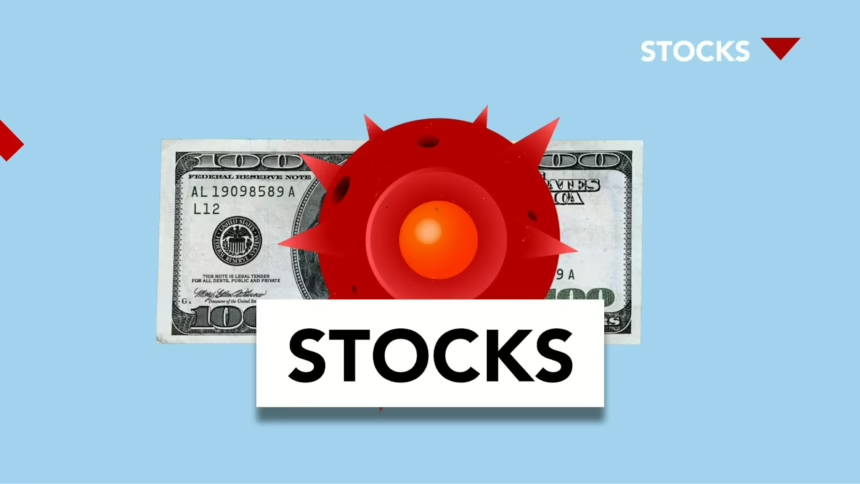Examining the Potential Fallout from an AI Investment Frenzy
The meteoric rise of artificial intelligence (AI) has fueled an unprecedented surge in the stock market. Tech giants and burgeoning startups alike are experiencing sky-high valuations, driven by investor optimism about AI’s transformative potential. However, this fervor raises a crucial question: What happens if this AI stock market bubble bursts? The Economist, in a recent analysis, delves into the potential ramifications, prompting a closer look at the underlying dynamics and possible scenarios.
Understanding the AI Investment Landscape
The current AI-driven market is characterized by a speculative fervor, reminiscent of past tech booms. Companies whose primary business is not directly AI-related are seeing their stock prices climb simply by announcing AI initiatives or partnerships. This broad-based enthusiasm, while indicative of excitement, also presents a risk if the underlying fundamentals do not justify the inflated valuations.
According to The Economist’s reporting, the sheer speed and scale of AI adoption are creating a sense of urgency for investors to get in on the ground floor. This rush to invest, coupled with a limited supply of AI-savvy talent and infrastructure, has driven up the cost of doing business for AI companies and, consequently, their market capitalizations. The report highlights that this could lead to a scenario where the market overestimates the immediate profitability and widespread application of AI technologies.
The Specter of a Market Correction
The prospect of an AI stock market correction is not merely an academic exercise. As The Economist points out, a sharp downturn could have significant ripple effects across the global economy. When investments in a particular sector become overvalued, any subsequent correction can trigger a cascade of negative consequences. This includes widespread investor losses, reduced access to capital for companies, and a general slowdown in economic activity.
One of the key concerns is the interconnectedness of the financial system. A significant blow to AI-related stocks could impact broader market indices, affecting pension funds, individual retirement accounts, and institutional investors. Furthermore, companies that have heavily invested in AI development or operations, based on the assumption of continued growth, might face severe financial strain if their anticipated returns do not materialize. This could lead to layoffs, R&D cutbacks, and a chilling effect on innovation.
Divergent Views on AI’s Enduring Value
While the possibility of a short-term correction exists, opinions remain divided on the long-term prospects of AI as an investment. Some analysts, like those quoted by The Economist, believe that the current valuations, while high, are a reflection of AI’s genuinely revolutionary potential. They argue that AI is not just another technological trend but a fundamental shift that will redefine industries and create new economic opportunities.
Conversely, a more cautious perspective suggests that the market may be underestimating the challenges and timelines associated with widespread AI implementation. These challenges include regulatory hurdles, ethical considerations, the need for robust data infrastructure, and the inherent complexity of integrating AI into existing business processes. The Economist’s analysis acknowledges that the path from groundbreaking research to profitable, scalable deployment is often long and fraught with uncertainty.
Potential Tradeoffs in an AI-Driven Economy
The pursuit of AI dominance presents several critical tradeoffs. On one hand, the drive for innovation and efficiency promised by AI could lead to significant economic growth and improved living standards. New industries could emerge, and existing ones could become more productive.
On the other hand, the rapid advancement of AI also raises concerns about job displacement, widening income inequality, and the potential for misuse of powerful technologies. A market correction could exacerbate these issues, as companies cut back on investments and employees. The societal implications of a potential AI bubble bursting are as significant as the financial ones.
What to Watch for in the AI Investment Arena
Investors and observers alike should remain vigilant for several key indicators. The Economist’s reporting implicitly suggests paying attention to:
* **Profitability Trends:** Are AI companies demonstrating a clear path to sustainable profitability, or are their valuations solely based on future potential?
* **Regulatory Developments:** Government policies and regulations surrounding AI can significantly impact its adoption and profitability.
* **Broader Economic Conditions:** The performance of the AI market is not isolated; it is influenced by the overall health of the global economy.
* **Consolidation and Competition:** As the AI landscape matures, expect to see both intense competition and potential consolidation among companies.
Navigating the AI Investment Landscape with Prudence
While the allure of AI-driven growth is undeniable, a measured approach is advisable. Investors should:
* **Conduct Thorough Due Diligence:** Understand the business model, revenue streams, and competitive advantages of any AI-related company before investing.
* **Diversify Portfolios:** Avoid over-allocating capital to a single sector, including AI.
* **Maintain a Long-Term Perspective:** Recognize that technological revolutions often involve periods of volatility.
* **Stay Informed:** Continuously monitor industry developments, economic news, and expert analyses.
The potential for an AI stock market correction is a complex issue with far-reaching implications. While the technology itself holds immense promise, the current market enthusiasm warrants careful consideration.
Key Takeaways for Investors and Policymakers
* The rapid rise in AI stock valuations is driven by both genuine innovation and speculative fervor.
* A market correction could have significant economic consequences, impacting investors and businesses.
* The long-term value of AI investments depends on overcoming technical, regulatory, and ethical challenges.
* Prudent investment strategies, diversification, and ongoing due diligence are crucial.
* Policymakers must consider the broader societal impacts of AI development and market volatility.
Further Reading and Resources
For those seeking to understand the nuances of the AI market and its potential risks, consulting reports from reputable financial institutions and economic forums is essential.
* The Economist: What if the AI stockmarket blows up?
This article aims to provide a balanced perspective on the current AI investment landscape, drawing upon available analyses to inform readers about potential risks and considerations.


